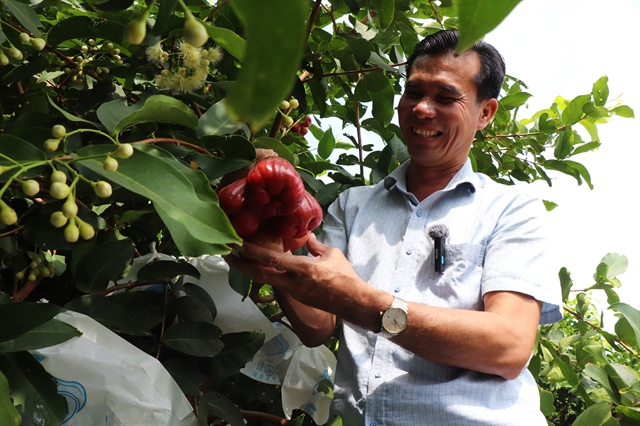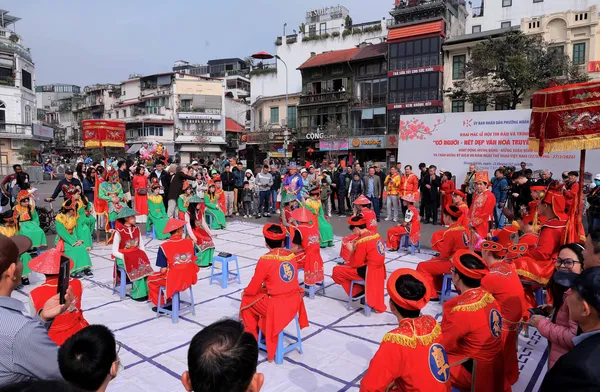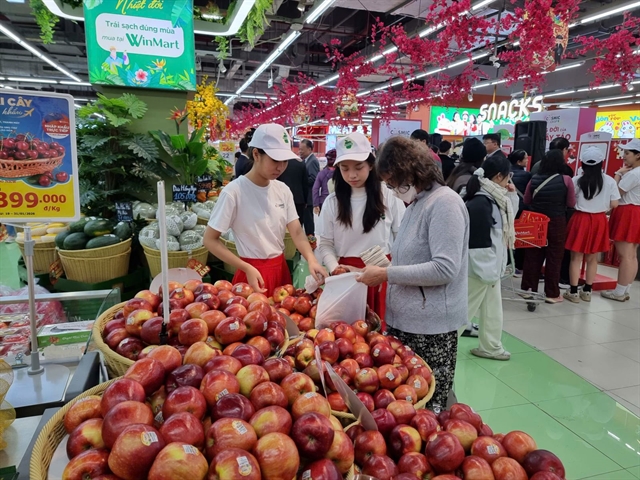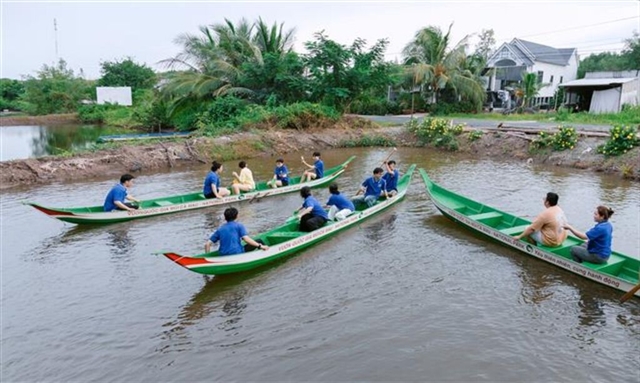 Environment
Environment

The use of fertilisers and pesticides in the Mekong Delta has decreased over the years but is still higher than the national average, despite it proving to be ineffective.
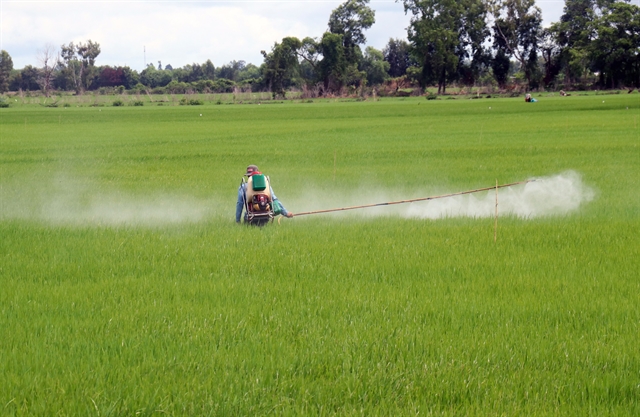
|
| A farmer sprays pesticide in a rice field in Kiên Giang Province. VNA/VNS Photo Lê Huy Hải |
HÀ NỘI — The use of fertilisers and pesticides in the Mekong Delta has decreased over the years but is still higher than the national average, despite it proving to be ineffective.
Head of the Plant Protection Department Hoàng Trung revealed the information during a conference on the use of the chemicals in the region held online on Friday.
"The effectiveness is not high and improper use also leads to waste of resources and higher costs as well as making the pests resistant to drugs, negatively affecting pest prevention and control work," Trung said.
The Mekong Delta region is an agriculture hub of Việt Nam, contributing more than 50 per cent of agricultural output, over 90 per cent of food exports and about 70 per cent of fruits in the whole country.
According to the department, Việt Nam recognises 24,491 fertiliser products in circulation nationwide, of which 80.4 per cent is not organic as of December 2020.
Among them, Mekong Delta provinces have 5,265, accounting for 21.5 per cent of the country’s total fertiliser products. The average use of fertilisers in the region is nearly 1.1 tonnes per hectare, 42 per cent higher than the national average. The localities with heavy use of fertilisers in the region are Bến Tre, Tiền Giang, An Giang and Vĩnh Long.
Among 4,021 trade names of pesticides permitted for use in Việt Nam, businesses based in Mekong Delta countries registered 1,207 trade names, accounting for 31.2 per cent of the total.
The average use of pesticides in the region is 6.27 kg per hectares, about 39.5 per cent higher than the national average. Tiền Giang, Đồng Tháp and Hậu Giang are the provinces that use the most.
The Việt Nam Pesticide Association said it was necessary to organise training for farmers and pesticide agents to improve their knowledge about proper and effective use of these products in agriculture.
The use of biological pesticides is an inevitable trend, so it is necessary to have more specific policies. The management agencies also need to cut down the requirements in seeking for recognisation of biological pesticides as well as reduce import tax and tax for those manufactured locally, according to the association.
Võ Quan Huy, director of Huy Long An company said farmers should be instructed and encouraged to collect plant residues and livestock waste to produce organic fertilisers. He also recommended practical and creative models of organic fertiliser farmers can learn and apply.
Representatives from Mekong provinces’ departments of agriculture and rural development said that their localities are encouraging the technology advance in agriculture to grow and develop clean and quality products. — VNS

